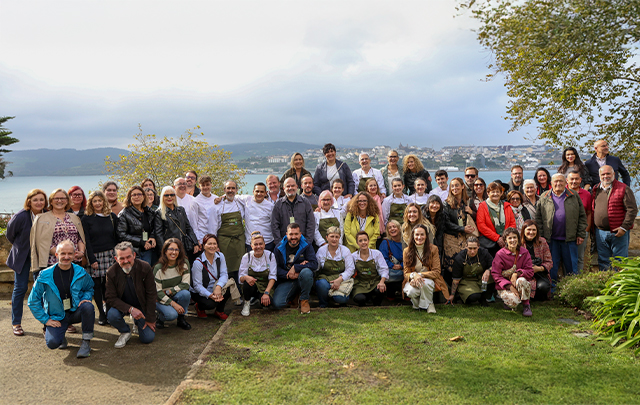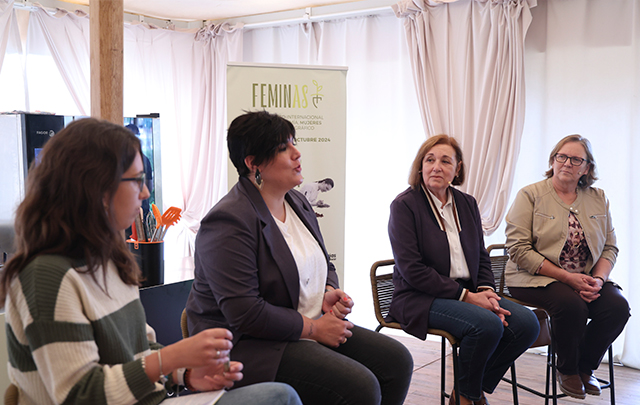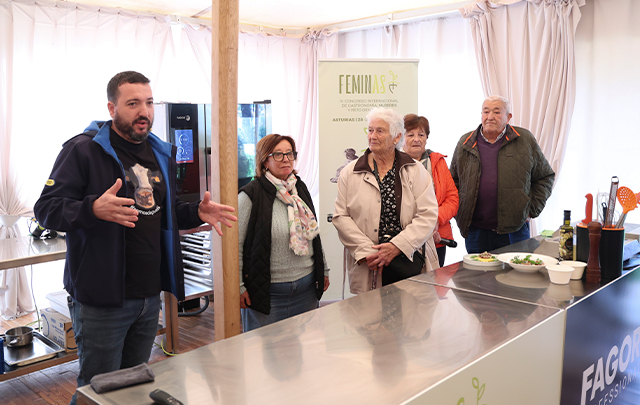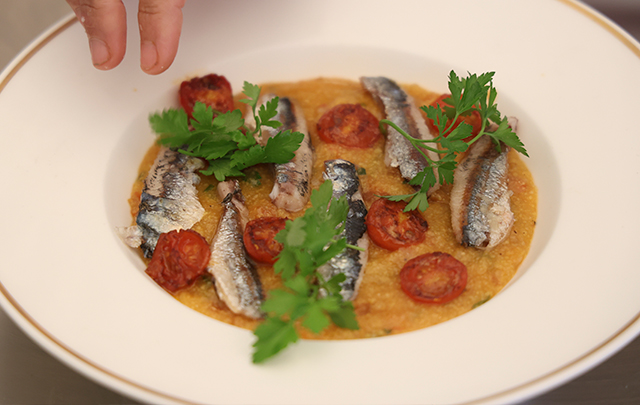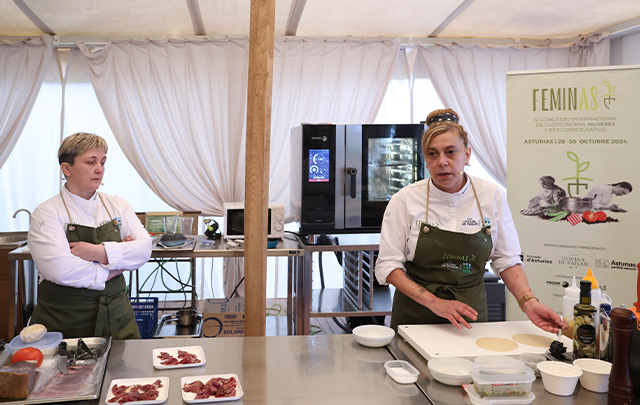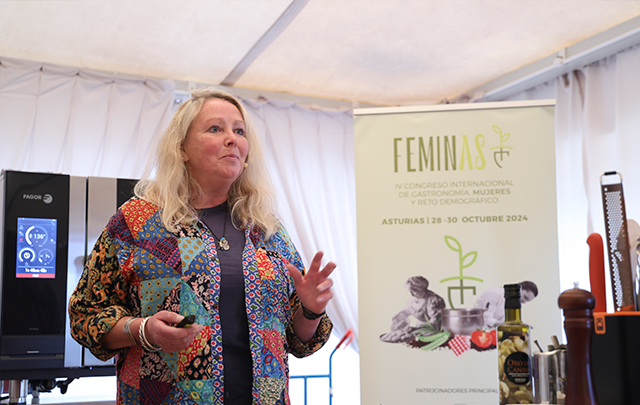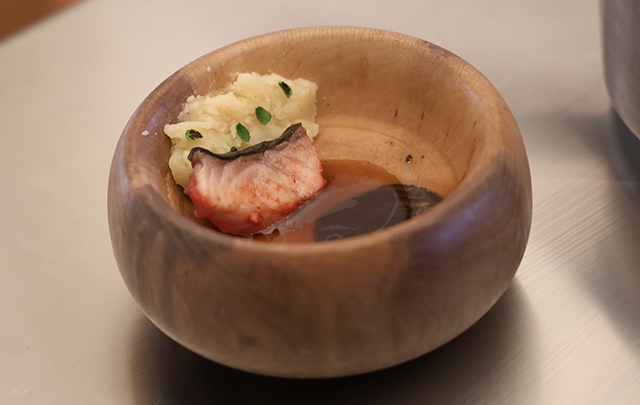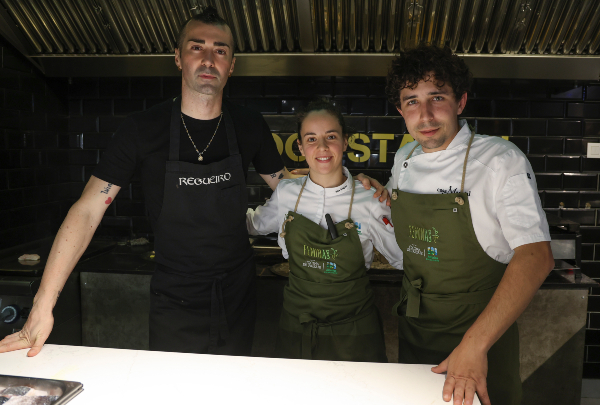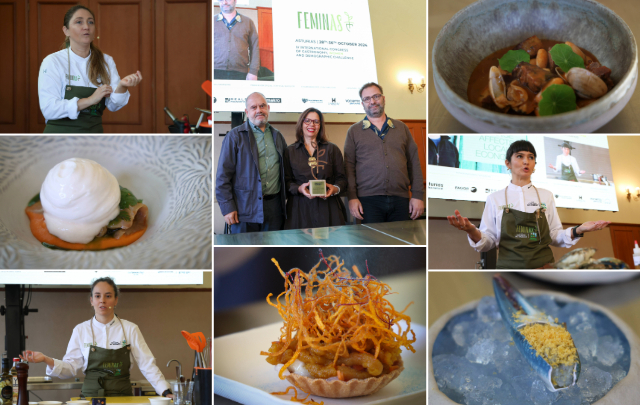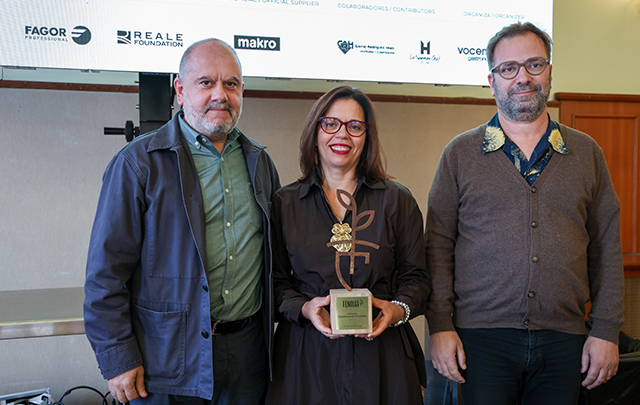News
Lucía Freitas: 'Gastronomy is an iceberg in which chefs are the tip, but women are the base and those who really support it'
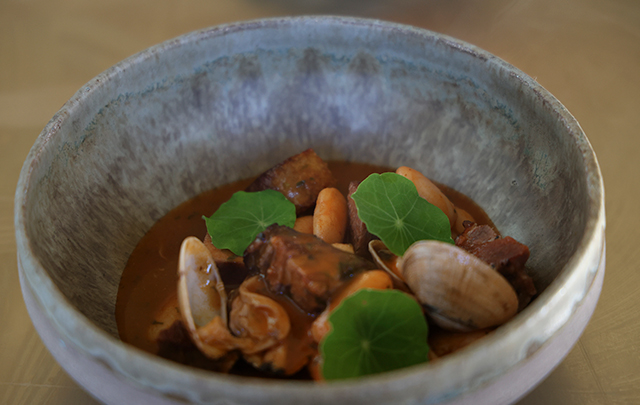
The Galician chef calls for the visibility of women producers and the value of their work. If, in addition to their hard daily work, they continue to be overshadowed, it will be difficult for them to take over.
Lucía Freitas (A Tafona*, Santiago de Compstela) combines her work as a chef and businesswoman in her restaurants with activism and the task of promoting the work of women producers in Galicia through the association Amas da Terra. Her presentation on the second day of FéminAs, the international conference on gastronomy, women and the demographic challenge, also sought to defend the simple dishes, the flavours of memory, 'all that cosy cuisine that tells you you are at home'.
Gastronomy is an iceberg where chefs are the tip, but women are the base and those who really sustain it,' said Freitas, who explained that she created Amas da Terra as a way of giving back to the producers everything they do for her and for other chefs. I work a lot with producers, but mostly with women producers. I feel I need to express my commitment and gratitude to those who support my work, and that is why I created the association,' she explained. In his presentations at congresses, Freitas usually shows short video clips dedicated to producers.
In this case, the protagonists were Esther Tejeiro Lemos, the Ribeira Sacra vine-grower who pioneered the use of organic methods in her vineyards; the shellfish collectors from Muros and Noia, "born fighters who still do not have the right to early retirement that men in the same sector have"; and Ana Corredoeira, a cattle breeder and biologist who, on returning to her family farm, decided to open it up to school visits. She welcomes children and talks to them about her work so that they can see it as a possibility for the future," she says.
The figure of her Asturian grandmother, Manuela, was at the centre of a day in Luarca, in western Asturias. My grandmother's house was where we spent our summers. It always smelled of stew,' she recalled. Unfortunately, I was not able to absorb all of her knowledge, and this is one of the things that drives me to work so that this heritage is not lost. She remembers cooking a dish called fabes con almejas y lengua, which refers to two of her stews, fabes con almejas and lengua estofada. I remember helping her to peel the tongue, a task that I later simplified," she says.
However, the exquisite sensitivity of this cook came into its own in the simplest of dishes she offered the public: caldo de gloria, taken from a poem by the most important voice in Galician poetry, Rosalía de Castro. In one of her poems, Rosalía speaks of 'caldo de gloria', a broth from times of extreme poverty, made with whatever women could find: cabbage, some corn, a few potatoes. It is a dish that shows how, at a time when there was nothing, women worked their magic and made a comforting meal out of the poorest ingredients," she explains.
This broth, in a simple three-ingredient version of potato, turnip and kombu seaweed, now welcomes customers to her restaurant. We serve it in a Galician conca made by one of the pottery artists who works with us, and for me it becomes the traveller's soup, because I offer it to people as an arrival, to make them feel that they have arrived home,' she said.
Freitas did not want to end his speech without mentioning the cheese revolution that Galicia is currently experiencing, "carried out by people who were tired of not having the value of their milk recognised and decided to give it that value by making cheese". Freitas is part of a research and development team working on products such as creams and sauces to help the sector move forward with new projects. In all areas of production, she recalled the importance and prominence of women and the end of their invisibility. In this sense, the work of Amas da Terra is a source of satisfaction for her, because "many have grown up with bad manners, without thinking that there is any other option than the one they have been given, and working with them, you see that with the videos we make and that can be seen on Youtube, they begin to realise what they are worth. If, in addition to the hard work, these women continue to be overshadowed, it will be difficult to replace them in the field and at sea," she concluded.


